 Fast forward from Peter O’Toole playing a tyrannical Nazi general in an over-the-top war movie in 1967 to Peter O’Toole playing a tyrannical director making an over-the-top war movie in 1978*. And whaddaya know, it’s the director who’s the most dangerous character. Our boy allegedly based his portrayal of messaniac helmer Eli Cross on David Lean.
Fast forward from Peter O’Toole playing a tyrannical Nazi general in an over-the-top war movie in 1967 to Peter O’Toole playing a tyrannical director making an over-the-top war movie in 1978*. And whaddaya know, it’s the director who’s the most dangerous character. Our boy allegedly based his portrayal of messaniac helmer Eli Cross on David Lean.I’m saying nothing.
The perks of retrospect permit the observation that Eli Cross sounds quite similar to Eli Roth.
Again, I’m saying nothing.
Besides, Cross is shooting a war film not an exercise in torture porn. Or is he? Everything is about the shot; about provoking the audience. “I know a man who made an anti-war movie,” Cross reminisces, “a good one. When it was shown in his home town, army enlistment went up six hundred percent.” Cross wants his movie to be subversive, and to that end views newly hired stunt man Cameron (Steve Railsback) as more or less expendable. What’s a mere human life compared to getting the shot?
Cross’s fixation on getting the shot is demonstrated when a camera quits shooting with 22 seconds of still-usable film in the camera. When he dares to be flippant and ask what Cross could possibly have captured in 22 seconds, the director rounds on him: “In 22 seconds, I could break your fucking spine. In 22 seconds, I could pinch your head off like a fucking insect and spin it all over the fucking pavement. In 22 seconds, I could put 22 bullets inside your ridiculous gut. What I seem unable to do in 22 seconds is to keep you from ruining my film.”
So with Cross monstrously egomaniacal and the stunts he demands crazy if not suicidal, why on earth does Cameron go along with them? Ah, thereby hangs the dynamic of Richard Rush’s film.
Cameron is a Vietnam vet with a hazy past. He’s on the lam. In the opening scene, he avoids arrest by a couple of hick cops who could have wandered in from ‘Smokey and the Bandit’ and duffs up a would-be hard nut who tries to prevent his escape. Hitchhiking out of town, he’s crossing a bridge when he thumbs a lift from a man driving an old Duesenberg made up to look like a German staff car; the driver responds by kicking him out of the car and then almost running him down. Cameron heaves a lump of iron after him and walks angrily away. Next thing he knows the car has gone off the bridge and a helicopter has appeared out of nowhere, Cross borne down out of the skies in Leni Riefenstahl-ish magnificence.
Cameron has found himself, inadvertently, in the middle of one of the key shots in Cross’s movie. Moreover, he’s just killed the stunt man who was about to engineer said moment. Cross, quickly intuiting that Cameron has something to hide, makes Cameron an offer: he’ll keep the cops off Cameron’s back and in return Cameron will take the stunt man’s place. Reluctantly Cameron agrees to it, and Cross begins by having the on-set hairdresser give him a do that emphasises his resemblance to the dear departed.
A warped and satirical battle of wills ensues. Cameron engages with his new career head-on, earning the approbation of the crew and the affections of leading lady Nina (Barbara Hershey), while Cross manipulates him at every twist and turn until Cameron becomes convinced that Cross wants him to take the dead man’s place in every single respect including the all-important bit about not being alive anymore.
And this is where, for all its flaws, ‘The Stunt Man’ resoundingly succeeds. (And there are flaws: I was going to use the phrase “gaps in the logic of the film”, but “gaps” suggests restricted pockets of space you’d be hard pushed to squeeze through. The gaps I’m talking about are huge, wide-open, drive-a-fleet-of-trucks-through-without-touching-the-sides affairs. Also, it’s overlong; the humour doesn’t always gel; and Railsback’s performance is plank-like.) But where ‘The Stunt Man’ works is in its blurring of the lines between reality and make-believe, between authorial conception and directorial vision, between perception and paranoia.
“If God could do the tricks that we can do he’d be a happy man,” Cross declares, delighting in the integration of rampant egomania and huckster-like chicanery that epitomises his personality. It’s a key line. ‘The Stunt Man’ is a house of cards, a hall of mirrors, a tissue of lies and a web of deceit. And so it should be. It’s about Hollywood.
* ‘The Stunt Man’ requires its audience to think, therefore the studio got cold feet, shelved it, and it was 1980 before the film saw the light of day.
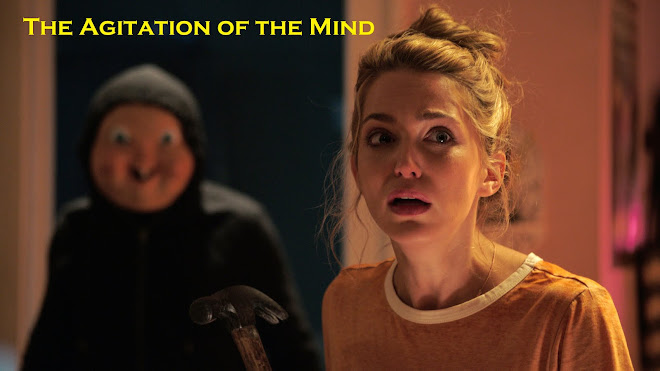
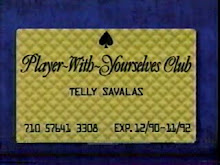
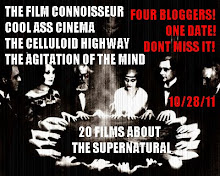
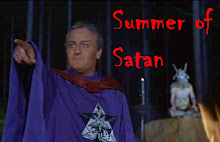
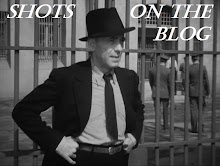

















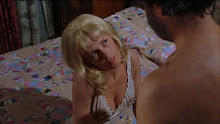









No comments:
Post a Comment